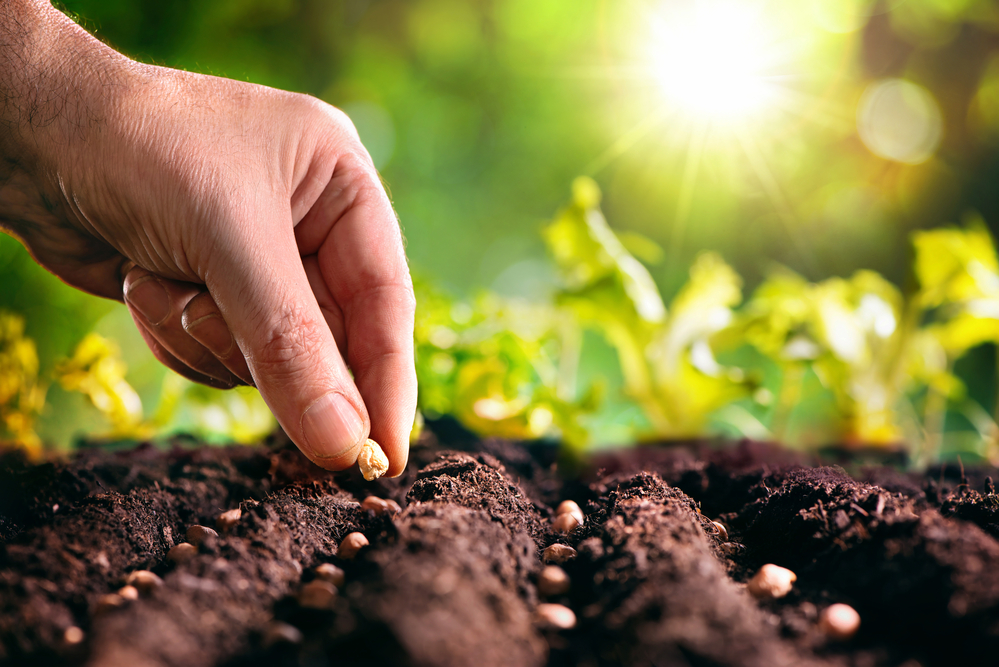The alliance was established by the Director General of the Inter-American Institute for Cooperation on Agriculture (IICA), Manuel Otero, and by the Global Director of Food Value Chains of Bayer’s Crop Science Division, Ronald Guendel, who defined a framework for action to be developed with a focus on issues of common interest, especially innovation, science and technology.

San José, 15 July 2021 (IICA). The Inter-American Institute for Cooperation on Agriculture (IICA) and Bayer are making progress in implementing an ambitious alliance to benefit the agrifood sector in the Americas, with positive impacts in several fields, including the training of farmers to reinforce sustainability, the promotion of regional agricultural trade and the incorporation of digital technologies, in a joint effort that also includes education projects and soil recovery and conservation.
The alliance was established by the Director General of the Inter-American Institute for Cooperation on Agriculture (IICA), Manuel Otero, and by the Global Director of Food Value Chains of Bayer’s Crop Science Division, Ronald Guendel, who defined a framework for action to be developed with a focus on issues of common interest, especially innovation, science and technology.
This agreement was the result of actions carried out by CIMAG, the Interpretive Center for Tomorrow’s Agriculture, an educational and pedagogical space that underscores the fundamental role of new technologies in the agricultural sector and allows for virtual agricultural experiences as well as reciprocal collaboration in sustainability issues through the dissemination and sharing of good practices. This is achieved utilizing BayGAP, the training tool developed by Bayer Crop Science AG, and carried out through innovative platforms featuring specialized content that facilitates the adaptation of production to markets and adds value to products, thereby improving the value chain.
The BayGAP tool makes an important contribution to food security by promoting good agricultural practices around the world for the benefit of small producers, food chain partners and consumers.
The objective of this training was to establish and implement a sustainable agricultural production model to benefit producers and their families, by ensuring food safety and quality, creating new opportunities for linking producers to markets and improving the use of natural resources and conditions for agricultural work.
The proximity is also manifested in the efforts dedicated to the “Living Soils of the Americas” program, as Bayer Crop Science became the first strategic partner of the initiative launched by IICA and by Professor Rattan Lal, director of the Carbon Management and Sequestration Center (C-MASC ) to combat land degradation, a phenomenon that threatens the ability of countries to sustainably meet the demand for food.
The announcement of Bayer’s incorporation into “Living Soils of the Americas” was made by Natasha Santos, Vice President of Global Stakeholder Strategy & Affairs at Bayer Crop Science. Bayer’s contribution will be made through the exchange of agronomic and scientific knowledge, advanced management strategies, technical cooperation, and expanded training programs to support sustainability and food security.
“As a scientific and agricultural company, Bayer works to deliver new innovations and business models to help farmers restore soil health and reduce the environmental impact of agriculture. We are pleased to be the first private entity to join the “Living Soils of the Americas” initiative and look forward to working with IICA and Professor Lal in finding solutions to sustainably meet the demand for food,” said Natasha Santos.
Through technical cooperation and in conjunction with governments, international organizations, universities, the private sector and civil society organizations, the “Living Soils of the Americas” initiative, a broad articulation of public and private efforts, will help to contain the degradation processes of the planet.
IICA and Bayer are also part of a coalition known as the Global Alliance to Fight against Fusarium TR4, which aims to contain the advance of the so-called “banana pandemic” and, in the medium and long term, to carry out research and develop genetic breeding solutions.
The Tropical Race 4 (TR4) of the Fusarium fungus is a disease with no current treatment available, which is transmitted through the soil and devastates plantations. It is the biggest threat in more than half a century to a crop that is especially important to vulnerable populations.
IICA, the Society of the Americas and the Council of the Americas, with Bayer’s support, recently organized a debate on the future of agrifood systems in the Western Hemisphere, focusing on the role of farmers and recovery from the Covid-19 pandemic. This event was attended by influential experts from the public and private sectors and was part of the debates and consensus-building processes that various actors have been carrying out in preparation for the 2021 Food Systems Summit, convened by the United Nations.
“Roundtable on Agriculture and Food Systems: How international trade can benefit rural communities and producers” was the title of the meeting. This event followed another debate organized by the Council of the Americas and IICA, which addressed the issue of how to improve the well-being, productivity, profitability and sustainability of farmers.
More information:
Institutional Communication Division.
comunicacion.institucional@iica.int











